Conditional Honesty
It was a frosty January morning. As we walked, the ice crystals crunched under foot. It was a strange meeting. He had sought me out, and in the privacy of our walk he offered me a deal.
A government contract was on the table—so big it could have transformed my business overnight. We’re talking life-changing numbers, the kind of deal that moves you from stable success to market dominance.
But there was a catch.
The offer didn’t come directly. It was delivered through two intermediaries, carefully layered in plausible deniability. The condition was simple, though unspoken: hire a particular consultant. I knew this consultant. Incompetent was the kindest word I could use.
It was tempting. After all, many would shrug and say, That’s how the game is played.
I walked away.
And the truth is—I paid for that choice. My company did well. I had enough money. But that contract would have put us on an entirely different trajectory. Every so often, I still feel that twinge of wondering: Did I do the right thing?
A Phrase That Lingers
Today as I scrolled through LinkedIn, I came across a profile and a few words caught my attention:
“I try to be honest with my customers, as best I can.”
That small phrase stopped me. As best I can.
It summed up what so many of us wrestle with: conditional honesty. Honesty, but only until it costs too much. Honest—until it threatens the deal, the promotion, or the approval of those who hold power.
And it pulled me right back to that fork in the road with the government contract.
The Balancing Act
Business owners live in the intersection of moral, ethical, and legal. The lines are rarely clean.
- Laws can feel stifling or outdated.
- Withholding a detail could make the difference in closing a sale.
- Retaliating against someone who “deserves it” can feel justified in the moment.
It’s messy. It’s human. It’s not easy.
But in the end, the true accounting isn’t in the profit and loss statement. It’s in how you feel when you look in the mirror. It’s in the story you carry about your choices—the one your children, colleagues, or community will one day retell when they describe who you were.
The Hardest Seat in the House
I often think about entrepreneurs who are trying to stay true while surviving the daily grind. But my deepest empathy goes to mid-level leaders.
They sit in the toughest chair.
The boss hands down directives that don’t line up with their values. Their teams look to them for honesty and consistency. And sometimes they are asked—directly, or with a knowing wink—to bend the truth.
That’s a brutal spot. Do wrong, or risk the job.
And here’s the reality: once your boss requires you to lie, the job is already gone. Integrity isn’t something you can lease.
Looking Back
That government contract? Yes, it would have changed my business. But walking away meant I didn’t have to spend the rest of my career explaining away my choice—or worse, burying it in silence.
Conditional honesty is everywhere in business. It’s the easy out. But unconditional honesty—the kind that costs you something—creates a different kind of wealth. A wealth of trust, of peace of mind, of clarity about who you are.
So here’s the question: ten years from now, when you tell the story of your choices, will you be proud of the conditions you placed on your honesty?
#Leadership #IntegrityInBusiness #Honesty #BusinessEthics #LeadershipLessons #Trust #DecisionMaking #EthicalLeadership #PersonalGrowth #BusinessStorytelling

